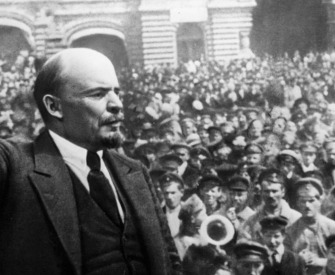A prisoner, condemned to confinement for life, broke out of his prison and took to headlong flight. After him, just on his heels, flew his jailers in pursuit. He ran with all his might. His pursuers began to be left behind. But behold, before him was a river with precipitous banks, a narrow but deep river—and he could not swim. A thin rotten plank had been thrown across from one bank to the other. The fugitive already had his foot upon it. But it so happened that just there beside the river stood his best friend and his bitterest enemy.
His enemy said nothing; he merely folded his arms. But the friend shrieked at the top of his voice, “What are you doing? Madman, think what you’re about! Don’t you see the plank’s rotten? It will break under your weight and you will perish!”
“But there is no other way to cross—and don’t you hear them in pursuit?” groaned the poor wretch in despair, and he stepped onto the plank.
“No, I won’t allow you to rush to destruction!” cried the zealous friend, and he snatched the plank from under the fugitive. The latter fell into the boiling torrent and drowned. The enemy smiled complacently and walked away, but the friend sat down on the bank and fell to weeping bitterly over his poor, poor friend.
To blame himself for his destruction did not, however, occur to him—not for an instant. “He would not listen to me!” he murmured dejectedly. “Though indeed,” he added, “he would have had to languish his whole life in an awful prison. At any rate, he is out of suffering now. And yet I am sorry, from humane feeling.” The kind soul continued to sob inconsolably over the fate of his misguided friend.
From “Friend and Enemy.” After studying classics, history, and philosophy at the University of Berlin, Turgenev moved to St. Petersburg in 1841, where he worked at the Ministry of the Interior. He resigned two years later to pursue writing full time, achieving his first major success in 1852 with the short-story collection Sketches from a Hunter’s Album. “No other man has been so much the incarnation of a whole race,” proclaimed the French historian Ernest Renan upon Turgenev’s death. “A world lived in him, spoke through his lips.”
Back to Issue



